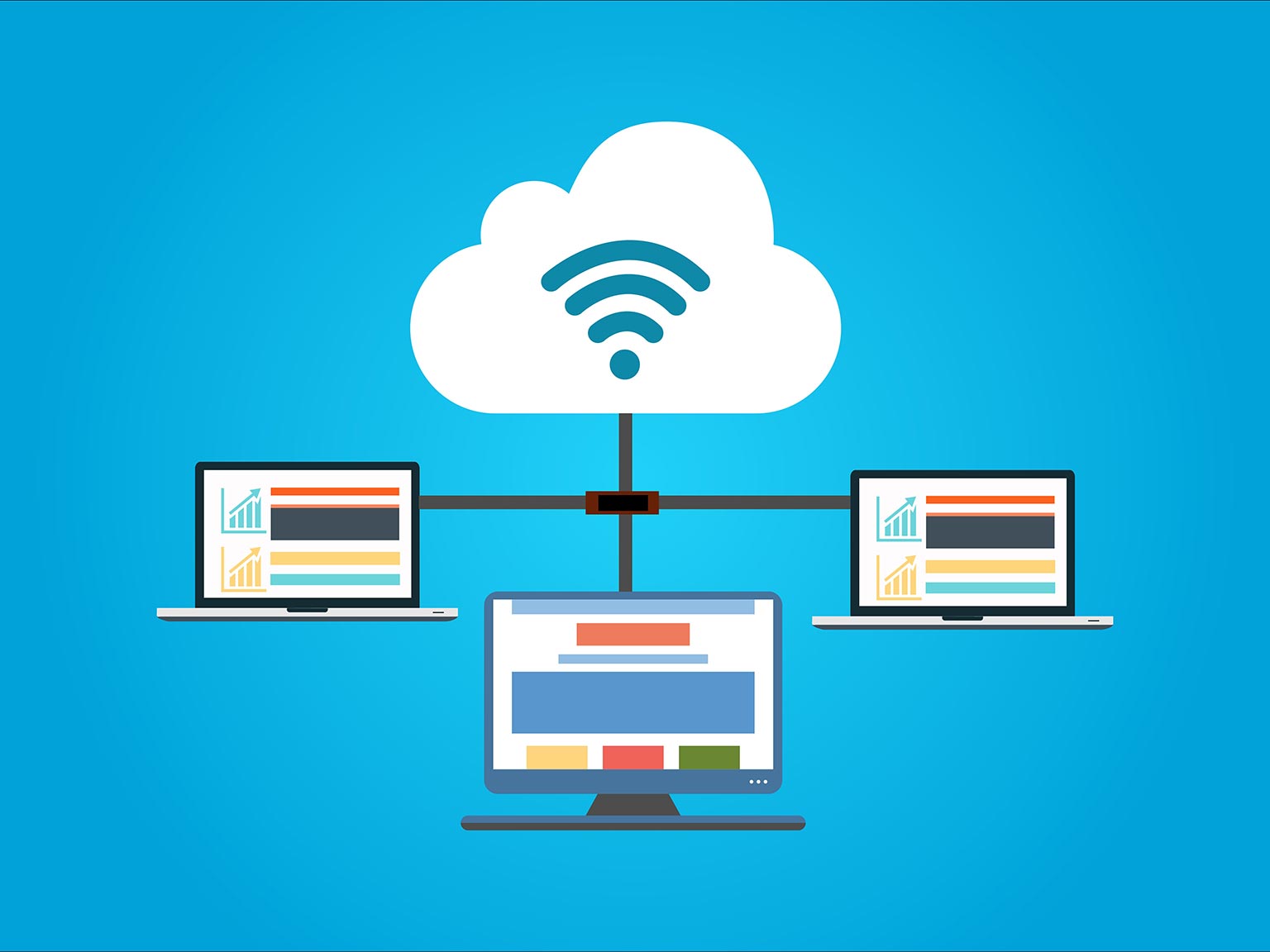What is the Cloud and do I need it?
If you’re asking yourself, what is the Cloud? You’re not the only one! Many people have heard of the Cloud, but don’t actually know what it is. And if you think you never use it… think again!…

So, let’s find out more about what the Cloud is, where it is and how it works…
What is the Cloud?
When people refer to ‘the Cloud’, they mean a group of servers that are accessed over the internet, and the databases and software which run on those servers. These Cloud servers are located all over the world in data centres.
The Cloud allows users to access the same applications or files from almost any device, because the information is stored on remote servers in data centres, instead of on the user’s device. This explains why you can log into your social media account from any device, and your profile and information will be the same, including conversations, photos, etc. This is the same way that Cloud email providers work, and storage apps.
Where is the Cloud?
The Cloud is everywhere! Or at least everywhere there is a computer and an internet connection. When you run a Cloud application, it uses multiple powerful internet-connected computers that are spread across the world.
How does Cloud computing work?
Cloud computing uses a technology called virtualisation. Virtualisation works by creating a simulated, digital computer that behaves the same way a physical computer would. This is referred to as a virtual machine.
When implemented correctly, these virtual machines can all work from the same host machine by ensuring the files and apps from one virtual machine are invisible to the other virtual machines. This is done by sandboxing them from one another, so they cannot interact with each other.
Working this way allows a much more efficient use of the hosting hardware. Running a group of virtual machines all at once, transforms one server into many servers, therefore increasing one data centre to a group of data centres and so on. This enables Cloud providers to offer their services to more customers, for a much lower price.
What are the main service models of Cloud computing?
- Software-as-a-service – Rather than users installing applications on their devices, SaaS apps live on Cloud servers, which means users access them over the internet. Examples include Slack, MailChimp, Salesforce, etc.
- Platform-as-a-service – PaaS vendors offer companies the things they need to build their own applications, over the internet. This includes infrastructure, dev tools, database management and operating systems. Examples of PaaS include Microsoft Azure and Heroku.
- Infrastructure-as-a-service – This is when a company rents servers and storage from a Cloud provider, which they then use to build their own apps. Examples include OpenStack, DigitalOcean and Google Compute Engine.
- Function-as-a-service – FaaS is a relatively new model, also known as serverless computing. FaaS breaks down Cloud apps into smaller components which only run when they are required. For example, if you were buying a house, an FaaS model would be similar to the tenant only paying for the dining room at mealtimes, the bedroom when they are asleep, etc. Any rooms that are not being used; the tenant would not pay rent on them.
What are the advantages of using the Cloud?
One of the main advantages of using the Cloud is users and companies no longer have to rely on physical storage servers. For businesses, moving on to the Cloud saves money on IT infrastructure and overhead. For example, if your data is stored on the Cloud, it removes the need to manage and maintain large inhouse servers. This can especially help small businesses that cannot afford these high inhouse IT infrastructure costs.
Using the Cloud also boosts connectivity and collaboration in businesses. Cloud based apps can be accessed by multiple people, across the world, which means employees can be working on the same project within an app, at the same time.
Another advantage of using the Cloud is you don’t need lots of space on your hard drive to use Cloud apps. For example, running some applications can require a decent-spec computer with a lot of hard disk space. And that can prove expensive. Cloud-based packages such as Microsoft Office 365 (now known as Microsoft 365), however, provide many of the same features that will work just as well on lower-specification computers.
Similarly, if you want to watch something on BBC iPlayer, YouTube or Netflix, the Cloud allows you to ‘stream’ the content immediately, rather than downloading it onto your device.
What Cloud services are available?
More and more online services make use of the Cloud every day. From storage space to processing power, networking, office apps and artificial intelligence. If there is a service that doesn’t require the user to be physically close to the computer hardware, it is probably being delivered using the Cloud.
In fact, if you use any of the below services, then you are very reliant on Cloud services.
- Dropbox
- OneDrive
- Xbox Live
- Netflix
- Hive
- Amazon Alexa
- Spotify
- Facebook etc.
These examples only really highlight a tiny fraction of the services which make use of the Cloud. Many software vendors are becoming increasingly reliant on the Cloud, releasing applications as services over the internet in subscriptions, rather than one stand alone product.
Who owns the Cloud?
Similar to the Internet, nobody owns or manages the Cloud. Instead, it is comprised of a variety of different applications which are all operated by different companies. The biggest companies that make use of the Cloud include Google, YouTube, Amazon and Microsoft, alongside many more that work behind the scenes.
Is it secure?
The Cloud is one of the most secure places to store data and information, even more so than your own computer. For example, if your laptop is stolen, all of the information saved on it is also stolen. However, if those files are backed up on the Cloud, you can easily download your information onto a new computer. Many Cloud storage apps will automatically sync with your computer hard drive and backup your files. This means you will always have an up-to-date version of your files saved on the Cloud.
Even if individual servers go down, Cloud servers will usually always be online and available. Cloud vendors will also back up their services on a number of machines across data centres to be safe.
The Cloud also uses encryption, which blocks hackers from gaining access to data stored on the Cloud.
Is the Cloud free?
Some Cloud applications are free, however even these will often offer a paid subscription for a higher level of service. For example, you may have a certain amount of free data, but if you need more, you will have to pay a fee.
Do I always have to be connected to the internet?
The Cloud does rely on having an internet connection at some point, however, many Cloud applications do not require a constant connection to work. Many apps now allow users to access their files and data in an ‘offline’ mode.
Why is it called the Cloud?
The name originated from tech industry slang. When the Internet was first developed, technical diagrams would depict servers and network infrastructure as a large Cloud. As more and more computing processes began moving to this new infrastructure of servers, people would refer to it as moving on to ‘the Cloud.’ This has stuck ever since and is now a commonly used phrase.
What is the Cloud? We can help!
Interested in moving your business to the Cloud? At E2E, we can advise your company on the best ways to boost your business. To learn more about our range of services, why not get in touch? A member of our friendly, expert team will be happy to help.







